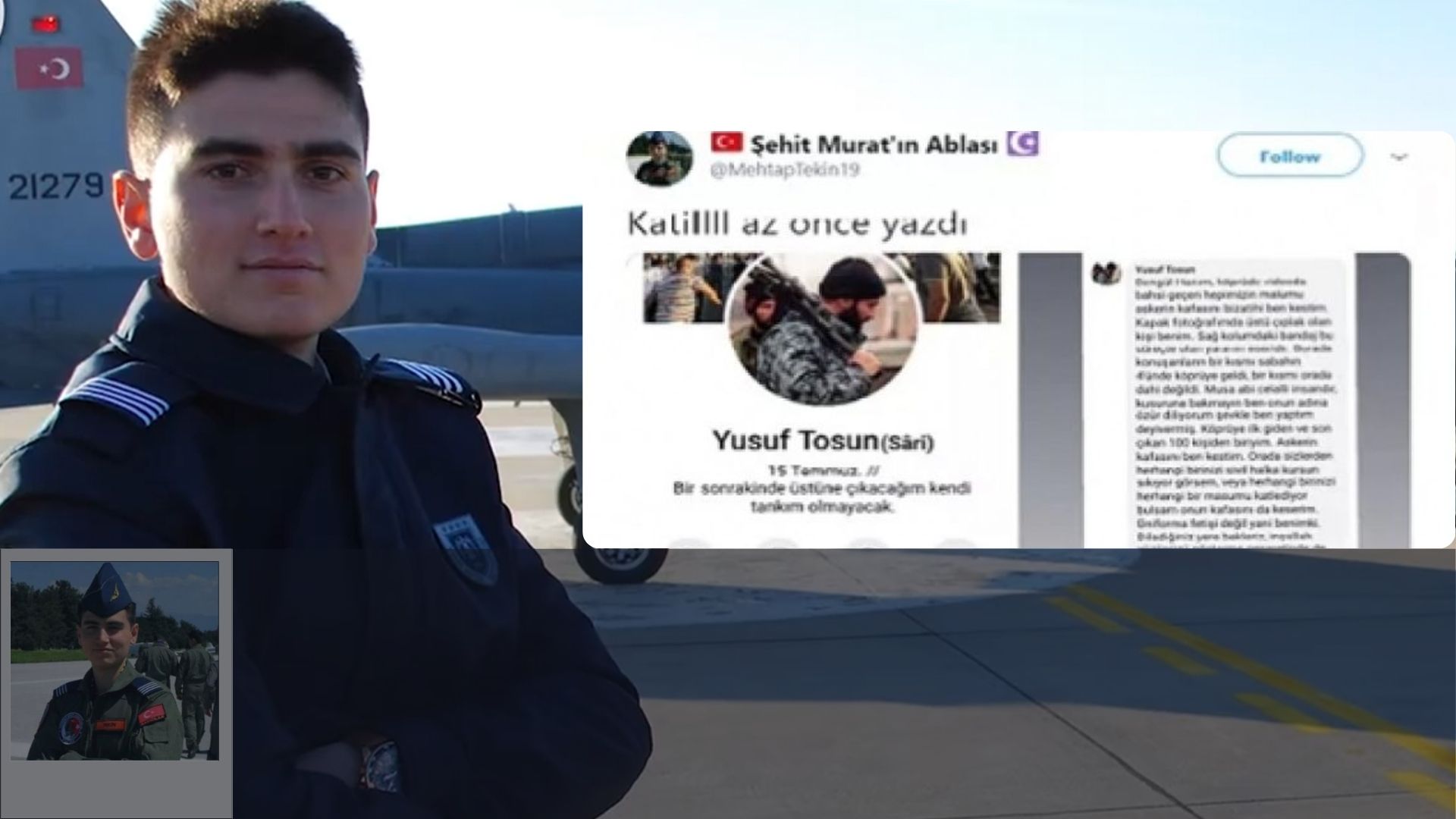Legal Evaluation of Ömer Halisdemir's Armed Intervention against Semih Terzi

Legitimate Defense Principles and Authorization to Use Weapons
As can be remembered, Brigadier General Semih Terzi, who came to take over the command within the framework of an assignment from the General Staff on July 15, was shot after Zekai Aksakallı’s order by Sergeant Major Ömer Halisdemir, who approached from behind and fired three shots. By the people who supported the demolition of the Turkish Armed Forces’ command structure and hierarchy architecture through the death of Ömer Halisdemir and constructed propaganda in this direction, Ömer Halisdemir is considered a hero, and anyone who tries to question this armed action is considered a traitor. In this article, the action of Ömer Halisdemir will be analyzed within the framework of legal principles.
If we consider this incident in terms of legitimate defense principles and authorization to use weapons:
- In the evaluation of legitimate defense, the decision is made according to the necessity and proportionality principle. “Necessity” means that the applied measure is necessary in terms of the aim to be achieved, and “proportionality” refers to the measure that should be between the applied measure and the aim to be achieved. In accordance with these principles, Semih Terzi’s purpose and intention should have been revealed, and he should have been stopped by using an option other than killing (for example, by shooting in his legs). After all, after the incident, while the Special Forces team was acting under the orders of Zekai Aksakallı, if there was a suspicious situation, it would be possible to arrest Semih Terzi and neutralize him.
- In accordance with the principles of limitedness and humanitarianism, it is considered that it is unlawful to “shoot directly with the intention of killing” only on the order of a general without applying the option of stopping if it is possible to stop. This is because there is no legal decision or notice that Semih Terzi is a putschist yet. Moreover, even in such a situation, there is no legal right to kill directly. In this case, Zekai Aksakallı put himself in place of all military courts and law, enforced his decision based on personal hostility, and according to the Turkish Criminal Law intentionally instigated him to kill. Even names such as Colonel Talat Aydemir or Major Fethi Gürcan, who were clearly known to be involved in a coup attempt and were caught during the coup attempt, could only be executed as a result of the decision taken by the courts. It is extremely inconvenient in terms of law for a general to see himself in front of the legal legislation of the Turkish Republic when he sees it appropriate and necessary. Based on this example, in the future, another general can take a death decision "in his own way" and enforce it on a person whom he deems guilty, without asking anybody for a justified reason.
- The authority to use weapons must be used gradually. So, first a stop warning should be given, one should open fire to the air, one should open fire to the ground, but if the attack continues, it is necessary to open fire in a way that is not lethal but sufficient within the scope of legitimate defense. Criminal Lawyer Dr. Ersan Şen indicates in his related article that, “the use of a weapon should be in a scale that will break the resistance of the attacker or cause it to be caught. Even if the person is armed, the law enforcement officer will not be able to use his/her weapon without his/her warning of "stop" or "surrender". Weapon may be used not to kill the person who attacks or threatens to attack with a firearm, but to end or capture the attacker/potential attacker.”
It is evaluated that Ömer Halisdemir's armed action exceeds the legal limits within the scope of the rights and limits to use weapon and due to the reasons listed, and that Zekai Aksakallı sees himself in front of all courts and legislation with the order he gave.
Why Did Ömer Halisdemir Fulfill the Unlawful Order?
In Zekai Aksakallı's statement; he states that Ömer Halisdemir started his career as an expert sergeant alongside him, he recommended him to be a non-commissioned officer and even took him to the non-commissioned officer exams himself. As can be understood from this statement, it is possible that the motivation that is the factor in the fulfillment of this excessive order by Ömer Halisdemir is the feeling of gratitude to Zekai Aksakallı rather than the legality of the order.
It is considered that a general's intention to take such a fatal sudden decision based on his own feelings is not appropriate and usual for the course of professional life pursued in military training and order, but that he can give such an order under strict assurance. In his statement to the court, Zekai Aksakallı did not make any explanations as to why and under what conditions he ordered Semih Terzi to be killed, and there was no question directed to him. This statement of Zekai Aksakallı, which was taken as a mere formality without confronting with the people he worked with in the court or his subordinates, and without dealing with any questions, just like Hulusi Akar and Hakan Fidan, justifies the evaluation presented above.




